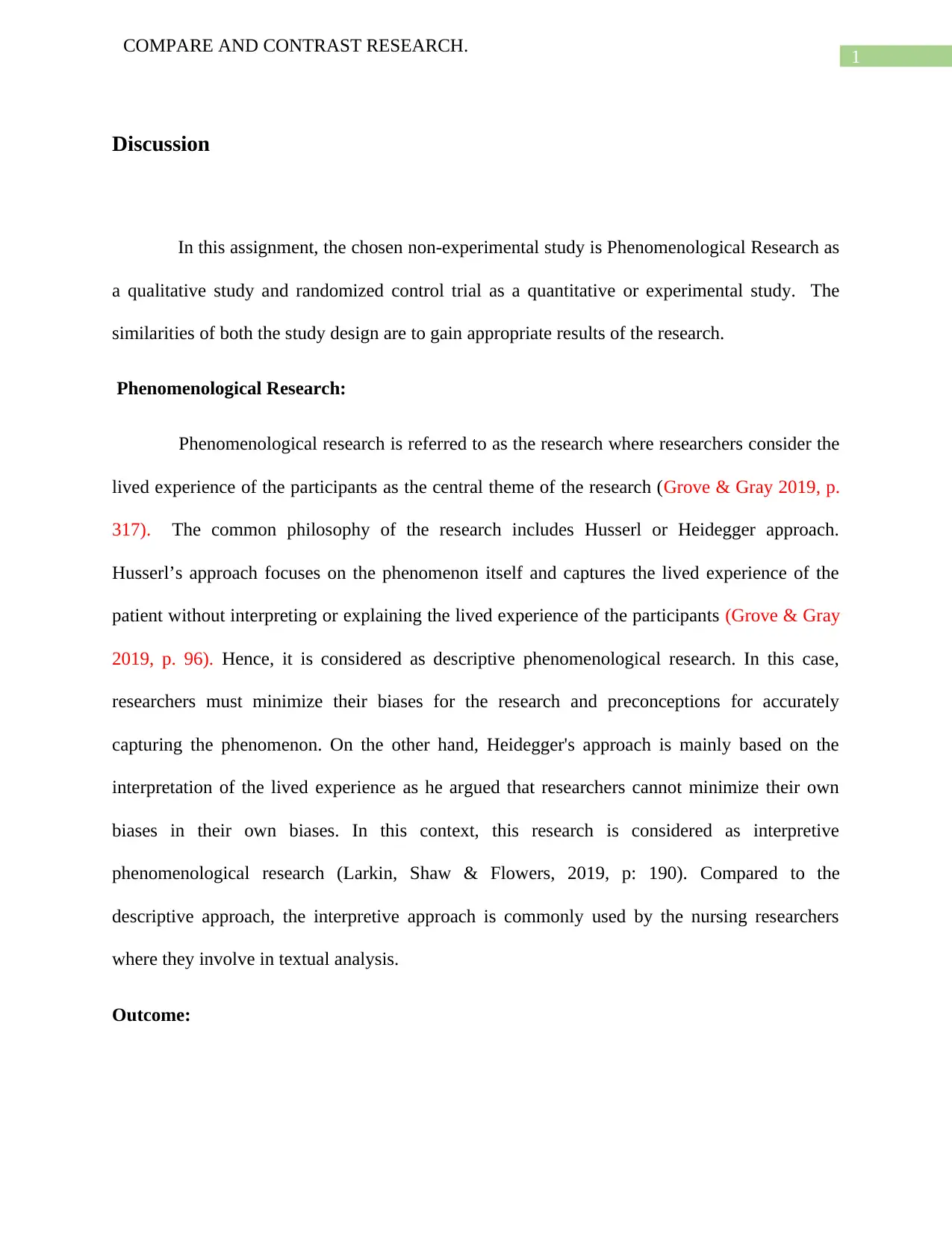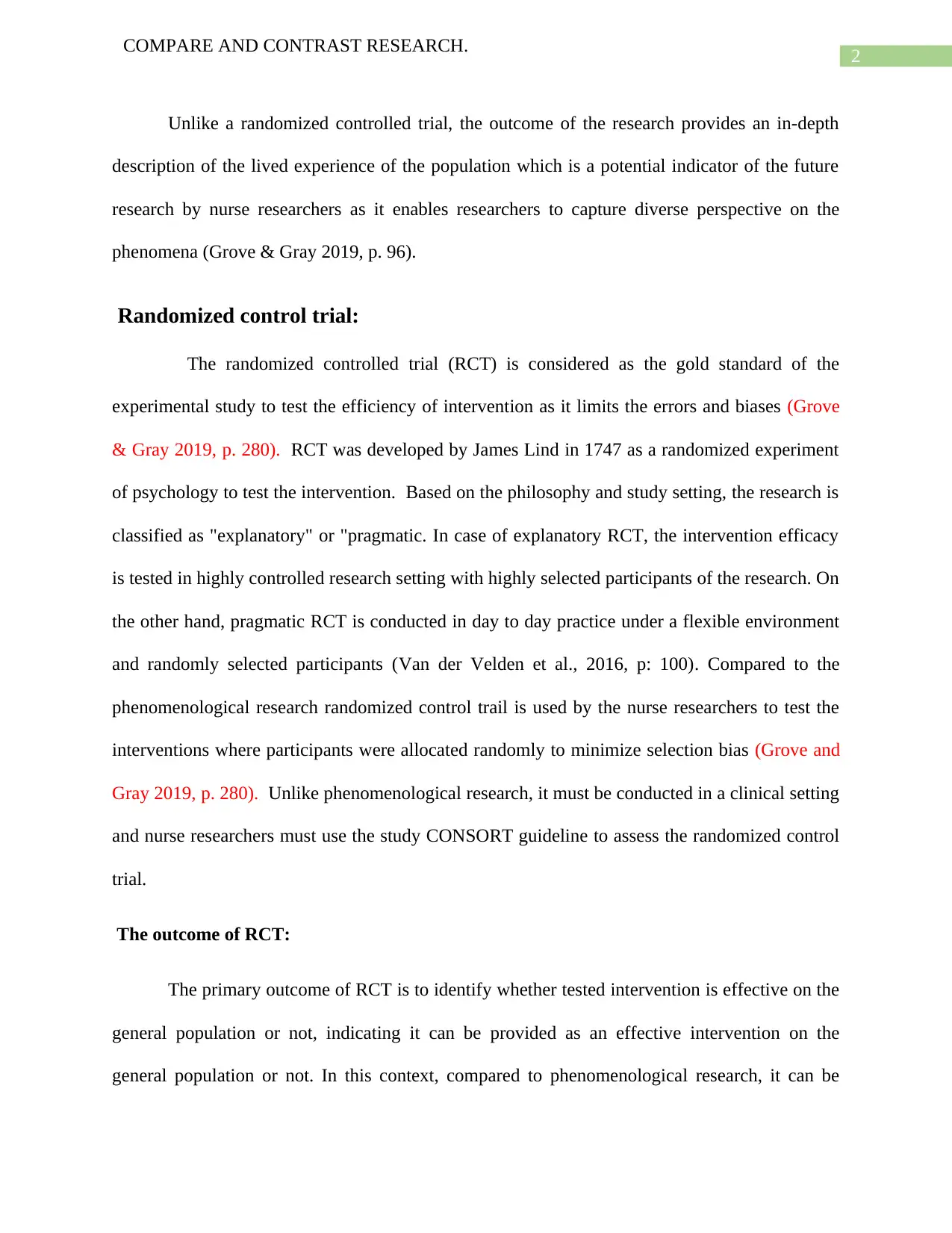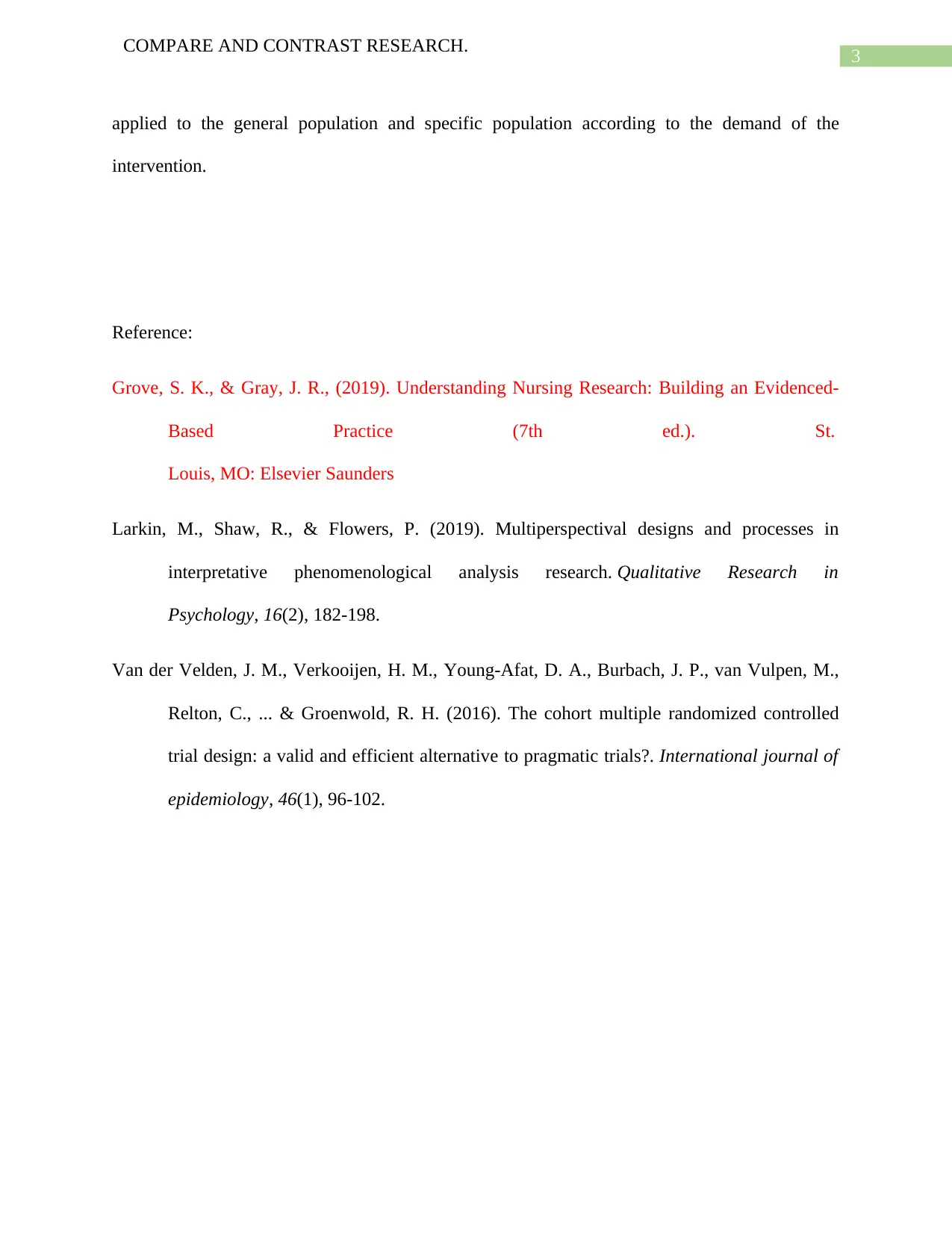Nursing Research: Comparing Experimental and Non-Experimental Designs
VerifiedAdded on 2022/08/26
|4
|760
|19
Discussion Board Post
AI Summary
This discussion post compares and contrasts two primary research designs: experimental and non-experimental. It focuses on phenomenological research as a qualitative approach and randomized controlled trials (RCTs) as a quantitative or experimental method. Phenomenological research, as highlighted by Grove & Gray (2019), prioritizes understanding participants' lived experiences, often employing descriptive or interpretive approaches. In contrast, RCTs, considered the gold standard for testing interventions, use a controlled environment and random assignment to minimize bias (Grove & Gray, 2019). The assignment details the outcomes and applications of each design, emphasizing their respective strengths in generating evidence for healthcare practices. Larkin, Shaw & Flowers (2019) and Van der Velden et al. (2016) provide further insights into the methodology and application of these research approaches. The post fulfills the assignment's requirements by paraphrasing chapter material, using APA format, and incorporating peer-reviewed sources.
1 out of 4










![[object Object]](/_next/static/media/star-bottom.7253800d.svg)